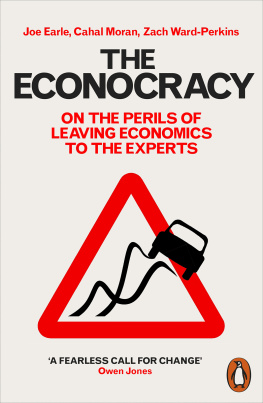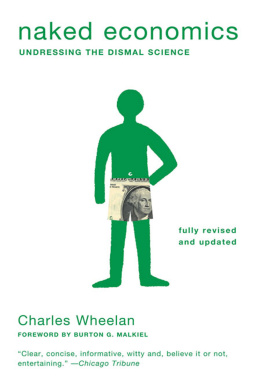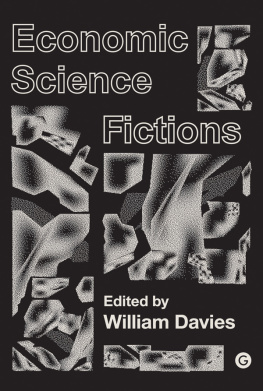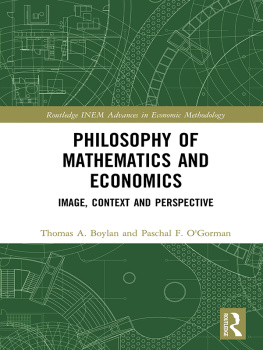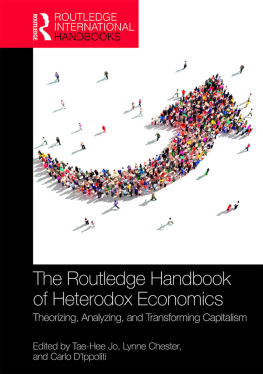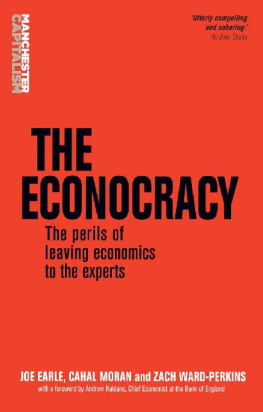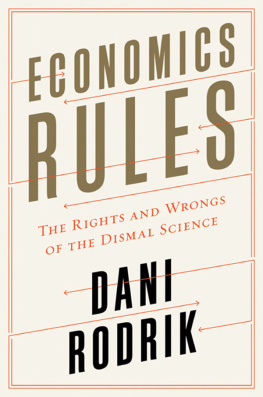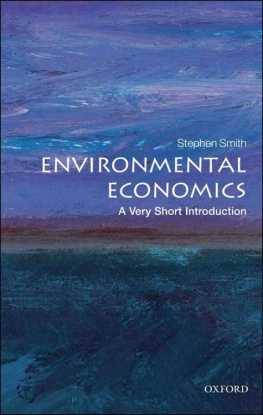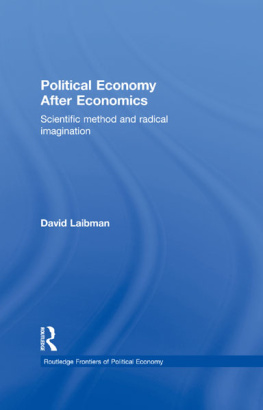Contents
Joe Earle, Cahal Moran and Zach Ward-Perkins
THE ECONOCRACY
On the Perils of Leaving Economics to the Experts
PENGUIN BOOKS
UK | USA | Canada | Ireland | Australia
India | New Zealand | South Africa
Penguin Books is part of the Penguin Random House group of companies whose addresses can be found at global.penguinrandomhouse.com.
First published in Great Britain by Manchester University Press 2017
Published in Penguin Books 2017
Text copyright Joe Earle, Cahal Moran and Zach Ward-Perkins, 2017
The moral rights of the authors have been asserted
Cover design: Jim Stoddart
ISBN: 978-0-141-98688-3
THE BEGINNING
Let the conversation begin
Follow the Penguin Twitter.com@penguinUKbooks
Keep up-to-date with all our stories YouTube.com/penguinbooks
Pin Penguin Books to your Pinterest
Like Penguin Books on Facebook.com/penguinbooks
Listen to Penguin at SoundCloud.com/penguin-books
Find out more about the author and
discover more stories like this at Penguin.co.uk
PENGUIN BOOKS
THE ECONOCRACY
Economics has become the organising principle, the reigning ideology, and even the new religion of our time. And this body of knowledge is controlled by a selective priesthood trained in a very particular type of economics that is, neoclassical economics. In this penetrating analysis, the authors show how the rule by this priesthood and its disciples is strangling our economies and societies and how we can change this situation Ha-Joon Chang
An interesting and highly pertinent book Noam Chomsky
This book is badly needed, looking at academic economics afresh: clear, well-written, well-researched, non-doctrinaire. It makes the case for pluralistic economics to address such questions as financial instability and climate change. Every economist and citizen should get a copy Vince Cable
A rousing wake-up call to the economics profession to rethink its mission in society, from a collective of dissident graduate students. Their double argument is that the econocracy of economists and economic institutions which has taken charge of our future is not fit for purpose, and, in any case, it contradicts the idea of democratic control. So the problem has to be tackled at both ends: creating a different kind of economics, and restoring the accountability of the experts to the citizens. The huge nature of the challenge does not daunt this enterprising group, whose technically assured, well-argued and informative book must be read as a manifesto of what they hope will grow into a new social reform movement Robert Skidelsky
If war is too important to be left to the generals, so is the economy too important to be left to narrowly trained economists. Yet, as this book shows, such economists are precisely what we are getting from our leading universities. Given the role economists play in our society, we need them to be much more than adepts in manipulating equations based on unrealistic assumptions. This book demonstrates just why that matters and offers thought-provoking ideas on how to go about it Martin Wolf, Chief Economics Commentator at the Financial Times
Economics, as practised in university economics departments, regurgitated by policy makers, and summarised in the mainstream media, has become a form of propaganda. This superb book explains how dangerous ideology is hidden inside a mathematical wrapper essential reading for anyone who wants to know about the con that includes everyone concerned with the future of democracy Jonathan Aldred, author of The Sceptical Economist
This book is for the many students who want to study economics because they want to help society solve its problems: a critical introduction to contemporary economics, written by a new, post-2008 generation of economists There is no better vaccination against the economic disease than this immensely readable book Wolfgang Streeck, author of Buying Time: The Delayed Crisis of Democratic Capitalism
Is economics too important to be left to the economists? The authors marshal a powerful case An important and timely book Andrew Gamble, Professor of Politics at the University of Cambridge
ABOUT THE AUTHORS
Joe Earle is a writer, organizer and researcher. He is a trustee of Rethinking Economics and its sister charity Economy (www.ecnmy.org). A postgraduate student at the University of Manchester, Cahal Moran is researching applied behavioural economics. Zach Ward-Perkins is a researcher at the University of Sheffield, working with the Local Authority on how to transform the provision of social care in the City. They are founding members of the Post-Crash Economics Society at the University of Manchester.
List of exhibits
Mentions of the economy (modern usage) in UK winning party manifesto
The three prongs of neoclassical economics
Basic supply and demand graph
IS/LM model
A typical macroeconomic operate a model question
A typical microeconomic operate a model question
Curriculum review breakdown of assessment
Percentage of marks for evaluation in all London School of Economics economics modules
Economic perspectives
Comparative funding for full-time undergraduate study per student before and after 2010 reforms
Example of an operate a model question from a behavioural economics exam
Foreword
I am writing this Foreword in the immediate aftermath of the referendum in which the UK voted to leave the European Union. That vote by the general public came against the advice of professional economists, the vast majority of whom believed that the economic costs of exit would be high. If ever there were a battle between econocracy and democracy, this was it. It is also pretty clear who won. Time alone will tell whether there was greater wisdom among crowds than among experts. But if nothing else, this episode lays bare the distance the economics profession needs to travel if it is to win heads, to say nothing of hearts.
Perhaps that should come as no surprise. The past few years have witnessed an economic and financial crisis as great as any in anyones lifetime. It is a crisis whose aftershocks are still being felt, whose wounds are still weeping. Some of the enormous collateral damage from that crisis has been felt, not unreasonably, by the economics profession. Indeed, it would not be too much of an exaggeration to say that the financial crisis has spawned a crisis in economics and finance. At root, this was every bit as much an analytical crisis as an economic and financial one.
And this is not the first time. Much the same occurred after the Great Depression of the 1930s. Back then, catastrophic intellectual error gave rise to catastrophic policy error, with catastrophic economic consequences. This times crisis may not have torn the economic and social fabric quite as violently as the one in the 1930s. But it was sourced in intellectual and policy errors every bit as great. It took Keyness leadership to diagnose and remedy those mistakes after the Great Depression, establishing him as the most influential economist of the twentieth century. Crisis offered the opportunity of a great leap forward. Thus far at least, the present crisis has yet to spawn a Keynes for the twenty-first century. And nor have we witnessed any great leap forward analytically. Perhaps it is simply early days. Revolutions, especially analytical ones, take time to build and grow. Indeed, they tend to proceed obituary by obituary. New brooms are needed to sweep clean. That means that salvation for the economics profession probably lies not among existing academic and policymaking dinosaurs, like me, but among the new generation of students of the discipline.

